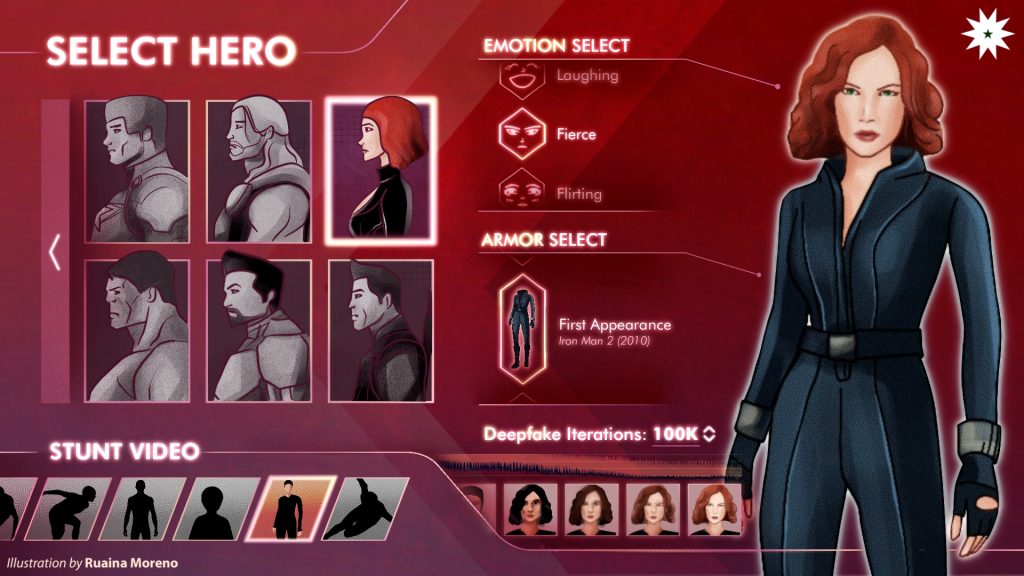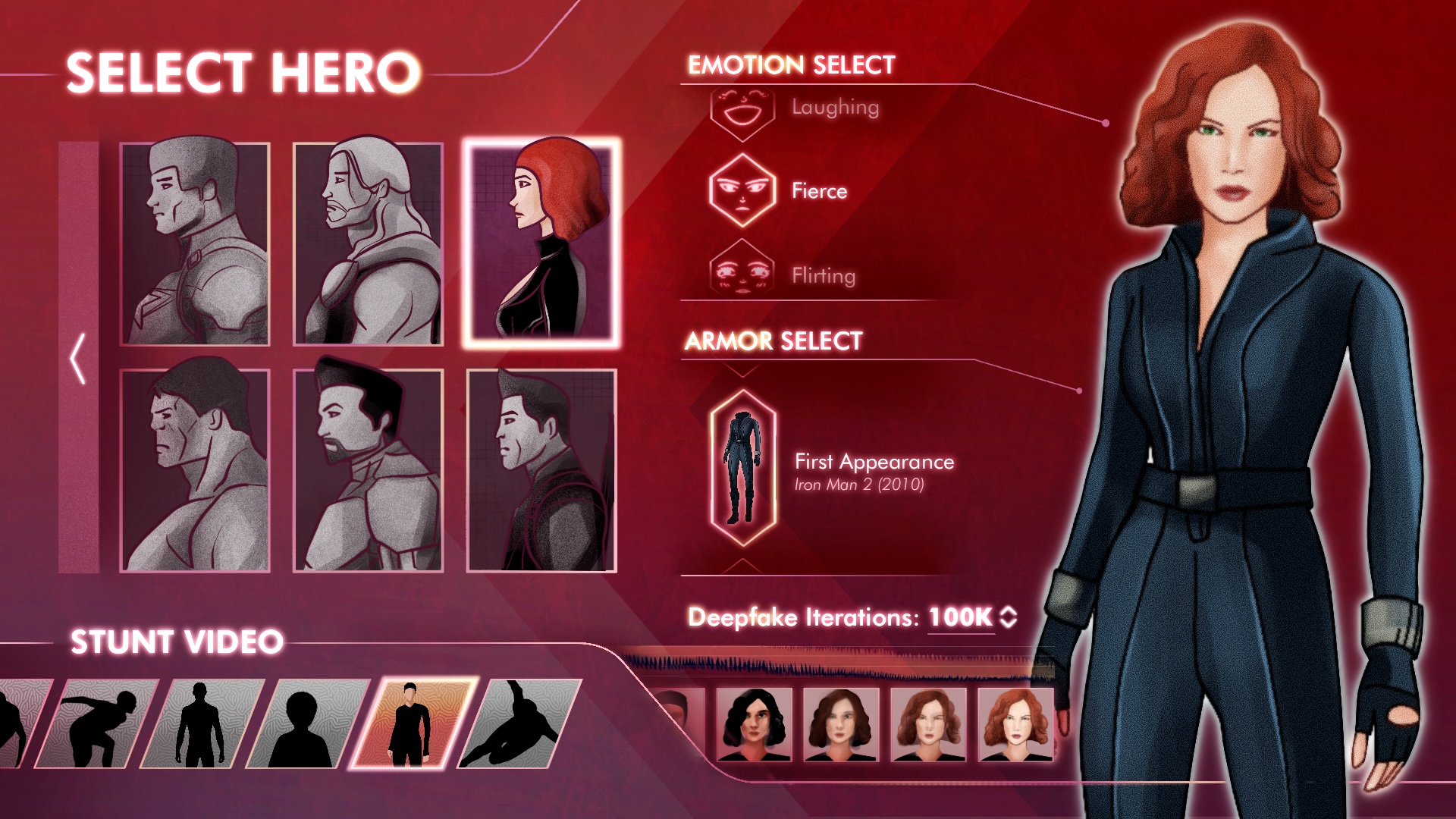In a move that will no doubt shock fans of the Marvel Cinematic Universe (MCU), Marvel Studios President Kevin Feige announced in a tweet last March 14 that all of the studios’ phase five and six films will be produced without actors. The infamous tweet, which has since garnered 69 million likes and nearly 420 million quote tweets, lays out Feige’s rationale for the change, “Actors are so expensive nowadays—they land a role in our movies and suddenly start demanding to be paid tens of millions of dollars for cameos. So, we’ve decided to get rid of them altogether.”
News of the shift has caused quite a stir both within and outside the MCU fandom, with some saying that it is the worst decision that has been made in the history of Marvel Studios. Feige, however, seems unfazed. “I believe in the power of our colleagues at ILM, Weta, Framestore, et cetera, to recreate the likenesses of our heroes with deepfakes and voice synthesizers,” he counters.

The tech behind the movie magic
Visual effects supervisors at these companies, however, are not pleased. Now, on top of filling in backgrounds, rotoscoping outfits, and relighting entire action sequences, they also have to animate faces generated with deepfakes. “It’s a nightmare,” says Noah Sleip, a visual effects artist at WetaFX. “The technology is just not there yet, but Marvel stationed pellet guns outside our windows, so there’s nothing we can do but work.”
Sleip is currently working on Ass-Man and the Wasp: No Way to Bone. “We’ve essentially trained a neural network on previous samples of Paul Rudd’s voice and face,” Sleip explains. “The output is a little rough, but it’s workable,” he furthers. When pushed on what exactly “workable” means, the visual effects artist says that he’s under an NDA, “I’ve got a family, man, please don’t make me spill more. Hey, is this recording?”
This confession unsurprisingly generated continued backlash. However, Feige and other higher-ups at Marvel Studios are overjoyed by the use of deepfake technology in their films. This sentiment is likewise shared by production staffers. As filming trials continue, they too are finding that deepfakes cut down costs for shooting and casting alike.
For instance, staff will no longer be required to circle between California and Atlanta. Additionally, using deepfakes and computer-generated (CG) body doubles allows for more efficient production; dialogue and sound effects such as Spider-Man’s webs may now be produced through artificial intelligence (AI) to conserve electricity.
Deepfakes have also provided an opportunity for fast, accessible, and realistic backdrops for the movies. However, there is still more. Joe Russo, the co-director of various MCU films, adds, “It’s amazing. This has removed the pain of actors who have vigorous shopping sprees between flights and shooting schedules. We also don’t worry about barking dogs and construction noise in the background anymore.” Overall, he maintains that this technology has drastically reduced the cost of making MCU films “without jeopardizing their quality.”
Glitching bots, assemble!
Last Saturday, March 26, the trailer for Doctor Strange in the Multiverse of Agnes, the first-ever MCU film without actors, was released. Feedback from the public, however, was unpromising
“Their voices sounded like squeaking mice,” opined Aisimp Bernardo (IV, BS-LKI). She furthers that “none of the characters look like themselves—si Strange nga, mukhang PS2 ‘yung model.”
(Strange’s model looked like it was from a PS2 game.)
James “Becky” Kamalig (II, AB-STRK) shares similar sentiments, “The robots’ bodies blended too well with the backdrops. Everything looked even greyer than before, portions of their bodies were disappearing during the movie, and special effects poorly appeared like glitches.”
Actors weigh in
Amid the current social media frenzy, The LuhSullian reached out to some of the MCU’s actors to see how they felt following Feige’s announcement. Some of them are understandably scared of what their future may look like, while others are relieved to have their contract end.
“Hollywood will probably start letting actors go little by little. I don’t know what I’m doing next…we actors don’t exactly have transferable skills,” Jeff Goldblum says. Goldblum is not alone—other actors share the same sentiment. “It’s a stupid move, (vulgarity), let me tell you. It’s ruining the art of cinema,” Samuel L. Jackson argues, following his statement up with a series of profanities that would make him fit right in Deadpool 2.
For certain post-Avengers: Endgame frontrunners, the news comes as a shock as well. “I just got my big break and now they’re letting us go?” Anthony Mackie complains. “It’s ridiculous, man,” he adds, and continues, “Well, at least I won’t have to work with Tom [Holland] anymore.” Sebastian Stan and Mackie have had a public “feud” with Holland since the release of Captain America: Civil War.
To Stan, Holland’s removal from the MCU is a little bit of an upside to the situation. “At least Tom loses his job too,” he notes. Former MCU actors, on the other hand, are grateful to have left early. “I’ve made my money,” Robert Downey Jr. admits, “so it’s really not my problem anymore.” Scarlett Johansson, who plays Black Widow, also echoes Downey’s statements, “Long time coming, huh?”
Some of the more versatile MCU actors feel more secure about their future “If I really can’t get an acting gig anymore, I still have a music career to fall back on,” Hailee Steinfeld points out. She is yet to learn that the music industry is also close to getting rid of its musicians.
As for the general public, they have flocked to Twitter to give their thoughts on the issue. “Guess we’ll be simping for literal robots, folks,” @mcuwomentopme tweets. “DC needed this during josstice league. could’ve saved cavill’s face,” @imvengeance says, referring to the horrible post-production attempt to get rid of Henry Cavill’s mustache during one scene in Justice League (2017).
But while actors and fans alike are either dreading or anticipating this new technology, their expectations may not be met either way due to the technology still being in its early stages. Though, of course, most actors are not going to say anything terrible about the technology itself out of fear of the red laser constantly trained on them by Marvel’s sniper.



